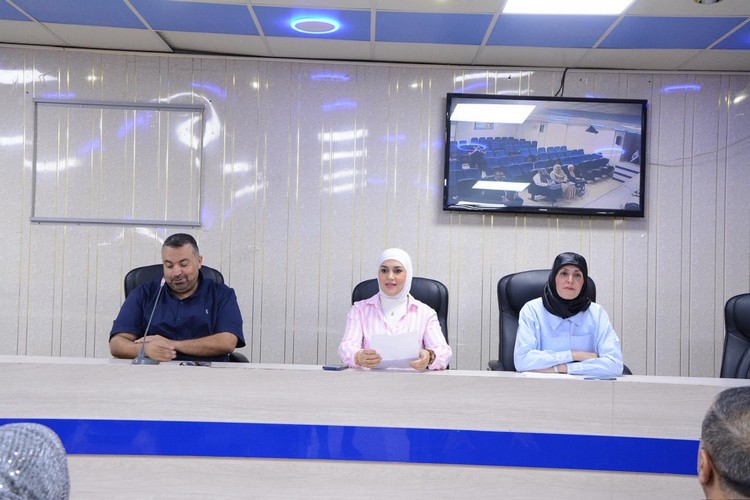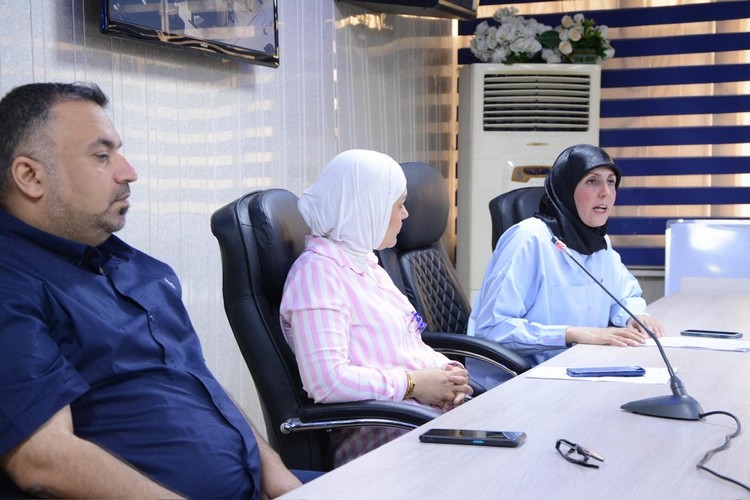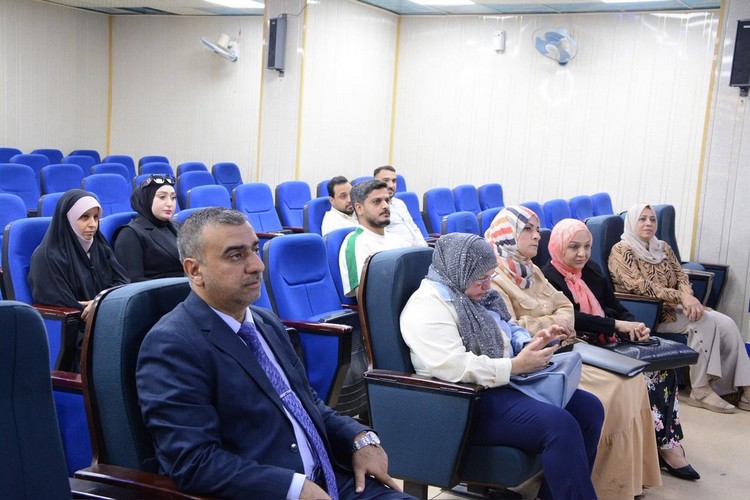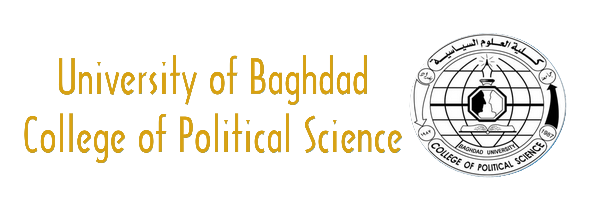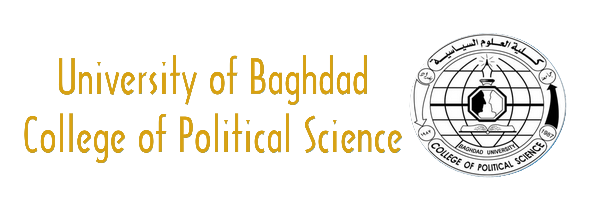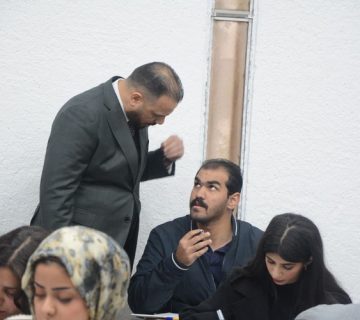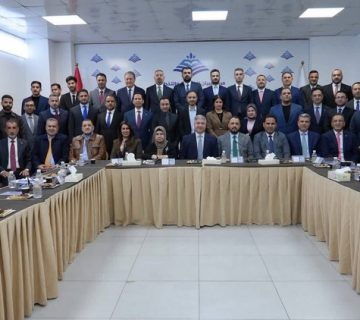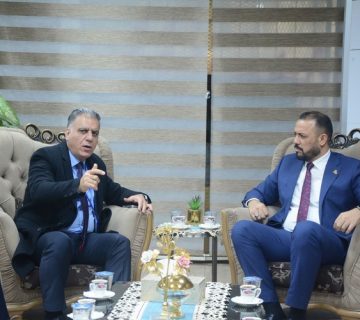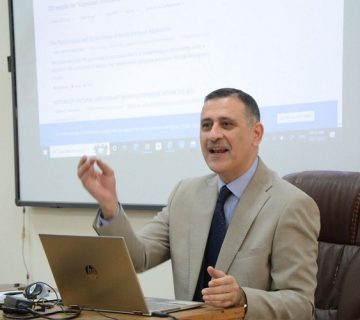The College of Political Science – University of Baghdad organized a specialized scientific workshop titled “The Role of Iraqi National Security in Promoting Civil Peace” in Dr. Jihad Al-Hassani Hall, under the supervision of the Department of Political Thought. The workshop featured contributions from several faculty members, including Lect. Dr. Saba Farouk Khudhur, Lect. Dr. Alia Abdul-Amir Abdul-Majid, and Assist. Prof. Dr. Ahmed Mohammed Ali, Head of the Department, who chaired the session.
The workshop aimed to shed light on the vital role of the National Security Service in supporting societal stability and state-building, through effective strategies for preventing internal and external threats, combating terrorism and organized crime, and addressing community conflicts before they escalate. It also emphasized the promotion of peaceful coexistence by coordinating with governmental and civil institutions, raising national awareness, strengthening social cohesion, and upholding the rule of law, thereby protecting rights and freedoms, building trust between citizens and the state, and reinforcing national reconciliation to achieve sustainable civil peace.
The discussions stressed the importance of a comprehensive vision of national security that goes beyond the security dimension to also address the economic, social, political, and cultural factors that influence societal stability. Participants highlighted that investing in strong and transparent state institutions, supporting civil society organizations, and empowering the active participation of youth and women form the foundation for achieving a sustainable peaceful environment and a cohesive society.
The workshop presented several practical recommendations, most notably:
1. Strengthening judicial independence and ensuring equal application of the law to guarantee social justice and equal opportunities, thereby reducing conflicts and disputes.
2. Launching inclusive dialogue initiatives among Iraq’s diverse social groups to resolve historical disputes, promote tolerance, and build mutual trust.
3. Developing state institutions to be strong and transparent, free from sectarian quotas, while empowering youth and women in decision-making processes to ensure fair representation of all groups.
4. Supporting civil society organizations and encouraging their participation in peacebuilding efforts, spreading a culture of tolerance, and resolving local conflicts.
These recommendations were also linked to the United Nations Sustainable Development Goals (SDGs), as they contribute to addressing the root causes of conflicts and promoting national security and civil peace:
• Goal 1: No Poverty – through economic programs that provide job opportunities, support small and medium enterprises, and offer accessible loans for youth to reduce unemployment and poverty, two of the main drivers of instability.
• Goal 4: Quality Education – by reviewing and developing curricula to promote values of tolerance and acceptance of others, strengthening a shared national identity, and preparing a conscious generation aware of the importance of peaceful coexistence.
• Goal 5: Gender Equality – by empowering women economically, politically, and socially, and enhancing their participation in peacebuilding and reconciliation processes to strengthen the effectiveness of national efforts.
• Goal 6 : Peace, Justice, and Strong Institutions – through enhancing the efficiency and transparency of security and sovereign institutions, combating corruption, and ensuring institutional accountability to sustain national security and civil peace.
The workshop’s organizers emphasized that this event represents a practical model of integrating academic and institutional efforts to support national security and build a stable and peaceful environment. It also reflects the College of Political Science’s commitment to its role in promoting sustainable development, building effective modern state institutions, and developing the capacities of faculty and administrative staff to achieve social peace and national reconciliation.
